When it comes to antioxidants, there is one master detoxifier of the immune system, but it has been somewhat of a secret: Glutathione.
“The Master Antioxidant” helps prevent ageing, cancer, heart disease, dementia and more, and is necessary to treat everything from autism to Alzheimer’s disease.
Your body produces its own glutathione, however factors such as poor diet, pollution, toxins, medications, stress, trauma, ageing, infections and radiation can deplete your glutathione.
This leaves you susceptible to unrestrained cell disintegration from oxidative stress, free radicals, infections and cancer. Your liver gets overloaded and damaged, making it unable to do its job of detoxification. (1)
There are around 76,000 medical articles on glutathione and the authors have all found the same thing – that glutathione prevents disease, and is important for maintaining the human body’s optimal health and performance.
A deficiency in glutathione has been found in people with the following conditions:
- Alzheimer’s disease
- Arthritis
- Autism
- Autoimmune disease
- Asthma
- Cancer
- Chronic fatigue syndrome
- Chronic infections
- Diabetes
- Heart disease
- Kidney problems
- Liver disease
- Parkinson’s disease.
What is Glutathione?
Glutathione is a small molecule (a tripeptide) made up of three amino acids: Glutamic acid, Cysteine, and Glycine. Glutathione exists in some foods and is made in your body where it acts as a key antioxidant. (2)
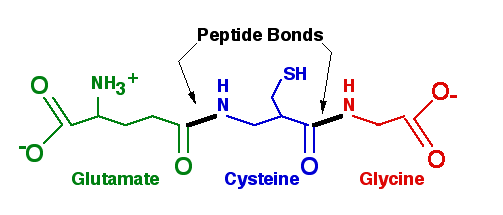
Glutathione is capable of preventing damage to important cellular components caused by reactive oxygen species such as free radicals, peroxides, lipid peroxides and heavy metals. (3)
Experts are now recognising that an alarming rate of people are deficient in glutathione because of the following:
- Artificial sweeteners
- Chronic stress
- Environmental toxins
- Genetically modified foods
- Infections
- Injuries
- Overuse of antibiotics
- Premature aging
- So-called “health foods” (4)
How to Optimize your Glutathione Levels
By optimizing your glutathione levels and improving your detoxification system, you can help protect yourself from chronic illness.
Glutathione Supplements
Most glutathione supplements do not work to increase glutathione levels. This is because the body digests protein, therefore upon ingestion the body breaks down the glutathione into it’s individual amino acids.
There are two types of glutathione supplements which are believed to be effective at raising intracellular gluathione levels. These two supplements are:
- S-Acetyl Glutathione
- Liposomal Glutathione
What is S-Acetyl Glutathione?
According to this article “S-Acetyl Glutathione is orally active, unlike plain glutathione, and is stable in the intestine and plasma when absorbed and delivered directly to the cells for natural de-acetylation intracellularly.
Plain glutathione delivered to the plasma by precursors, liposomal products or intravenously must be broken down by enzymes to the basic amino acid components for absorption into the cell and require more energy expenditure to be re-constructed back to glutathione.
It is known that disease states can block the re-assimilation of components into glutathione.
Therefore, it is a better dietary/therapeutic decision to provide the orally active and absorbed S-Acetyl Glutathione which increases intracellular glutathione directly and naturally without increased energy expenditure and without being compromised from disease states.”
Studies have found S-Acetyl Glutathione to be comparable to glutathione given intravenously in terms of protecting from oxidative stress.
Therefore, this is the product I would recommend for increasing glutathione levels via a supplement:
Liposomal Glutathione
In liposomal glutathione, the glutathione molecule is surrounded by a liposome made from phospholipids. Liposomes are not digested or broken down, and allow the glutathione to enter the bloodstream intact. Liposomal Glutathione tends to be more expensive than S-Acetyl Glutathione.
Try: Optimal Liposomal Glutathione by Seeking Health
Aiding the Body in Making it’s Own Glutathione
The production and recycling of glutathione in the body requires a few different nutrients which you can find in food and as supplements.
- Cysteine is the rate-limiting factor in cellular glutathione biosynthesis.
Cysteine is present in all high-protein foods: all meats and poultry, dairy and eggs, quinoa, buckwheat. Small amounts of cysteine can be found in other plant sources: broccoli, Brussels sprouts, red and yellow bell peppers, onions, garlic.
The trouble is that cysteine is broken down by cooking and by stomach acid and so does not enter the bloodstream.
Raw Dairy – The One Food which Contains Bioavailable Cysteine
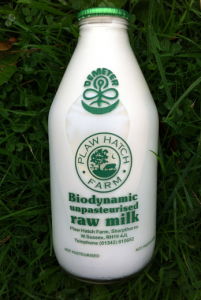
Raw cow’s milk contains three highly bioactive proteins:
- Lactoferrin
- Serum albumin
- Alpha lactalbumin
These proteins contain exceptional amounts of cysteine in the form that can enter cells: each cysteine molecule is bonded with another cysteine molecule by a disulfide bond or bridge.
This paired unit is now called cystine. Cystine can easily enter the cell where it breaks down back into two cysteine molecules and participates in the formation of glutathione.
These disulfide bonds are very fragile and easily denatured by heat and mechanical stress. Pasteurisation of milk at high temperatures destroy these bonds.
Therefore cysteine from pasteurised milk is no use for building glutathione. Chris Masterjohn has written extensively about raw milk and glutathione on the Weston Price website.
Other Supplements to Boost Glutathione
These supplements aid the production and recycling of glutathione:
- N-Acetyl-Cysteine – used for treating asthma and lung disease and to treat people with life-threatening liver failure from Tylenol overdose. In their article, Examine.com found that, “There is currently, no known benefit of orally ingested glutathione, that cannot be more readily mimicked by supplementation of N-acetylcysteine, and couldn’t theoretically be aided by a high protein diet including dietary sources rich in Cysteine (whey protein).”
- Alpha Lipoic Acid – this is a close second to glutathione in importance in our cells and is involved in energy production, blood sugar control, brain health and detoxification.
- Methylation Nutrients (folate and vitamins B6 and B12) – these are perhaps the most critical to keep the body producing glutathione. Take folate (especially in the active form of 5-methyltetrahydrofolate), B6 (in active form of P5P) and B12 (in the active form of methylcobalamin).
- Selenium – an important mineral that helps the body recycle and produce more glutathione. It is probably better to get selenium from food (Brazil nuts and seafood) rather than supplements.
- Antioxidants including Vitamins C and E (in the form of mixed tocopherols) – work together to recycle glutathione.
- Milk Thistle (silymarin) – used in liver disease and helps boost glutathione levels.
Other Tips for Boosting Glutathione
There are other ways to boost Glutathione such as incorporating certain foods into your daily diet, as well as lifestyle changes including more exercise. Follow these tips and you will have made positive changes for the long term.
- Glutathione-Rich Foods
The easiest way to maximise glutathione productivity and activity is to eat lots of glutathione-rich foods, such as asparagus, spinach, avocado, squash, melons, grapefruit and peaches. It’s better to eat these foods raw or minimally heated, since heat and microwaving tends to destroy antioxidants.
The glutathione is these foods will be digested, but you will have provided the body with the amino acids from which to synthesise glutathione (as mentioned above this synthesis can be inhibited in disease states.)
- Vitamin C Foods
Eat more colourful, antioxidant-packed produce, such as strawberries, bell peppers and mangoes, all of which are high in vitamin C. The more antioxidants you have, the less your body needs to rely on its glutathione reserves.
- Sulfur-Rich Foods
Consume sulfur-rich foods, high in cysteine – the sulfur-rich amino acid is a key building block for glutathione. Add the main ones to your diet which are garlic, onions and the cruciferous vegetables (broccoli, cabbage, collards, cauliflower, kale, watercress, etc.) Consume raw dairy products.
- Whey protein
Whey protein is a good source of cysteine and the amino acid building blocks for glutathione synthesis. For whey protein to be effective in raising glutathione it must be kept undenatured – unheated and unaltered – at all times during the manufacturing process.
- Exercise
Boost your glutathione levels with exercise which boosts your immune system, improves detoxification and enhances your body’s own antioxidant defences. If you’re not already doing daily exercise like walking, jogging, HIIT, or playing sports, start off slowly and build up to 30 minutes a day.
- Less toxins
Limit exposure to toxins by buying organic produce, filtering your water, cutting down on refined foods, and avoiding chemical-packed personal-care and cleaning products.
Minimizing your toxic burden will help preserve your body’s ability to produce glutathione, and also reduce excess demands on your body’s glutathione supplies. (7)
Summary
Glutathione “The Master Antioxidant” is one of the most important factors in our health and wellbeing. Many people are deficient in this nutrient. Incorporating the lifestyle changes discussed above, and possibly including S-Acetyl Glutathione, or supporting supplements, is the first step to preventing long-term illness.
Your thoughts
Are you surprised to hear about the benefits of “The Master Antioxidant” Glutathione, or have you heard about it before? Please share your thoughts in the comments below.
References
- http://drhyman.com/blog/2010/05/19/glutathione-the-mother-of-all-antioxidants/
- https://examine.com/supplements/glutathione/
- Pompella, A; Visvikis, A; Paolicchi, A; Tata, V; Casini, AF (October 2003). “The changing faces of glutathione, a cellular protagonist”. Biochemical Pharmacology.
- https://draxe.com/glutathione/
- https://examine.com/supplements/glutathione/
- http://drhyman.com/blog/2010/05/19/glutathione-the-mother-of-all-antioxidants/
- https://experiencelife.com/article/glutathione-the-great-protector/
Disclaimer: Paleo Britain is a participant in the Amazon EU Associates Programme, an affiliate advertising programme designed to provide a means for sites to earn advertising fees by advertising and linking to Amazon.co.uk. Buying through our affiliate links does not cost you anything but helps us keep this website up and running. Thank you!
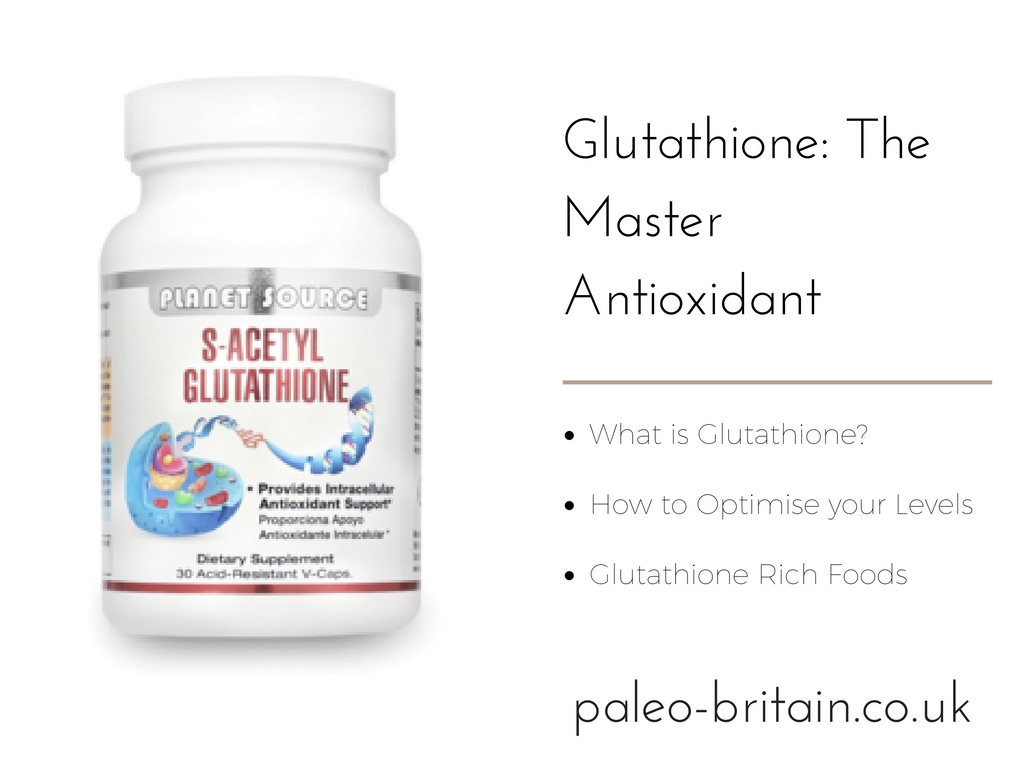
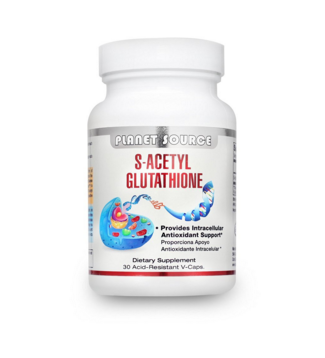

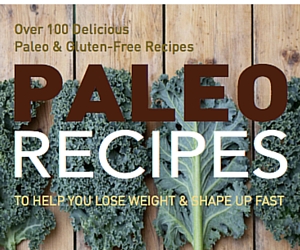
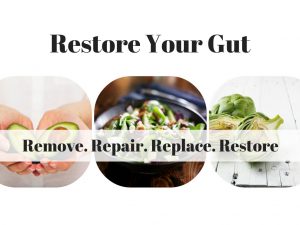

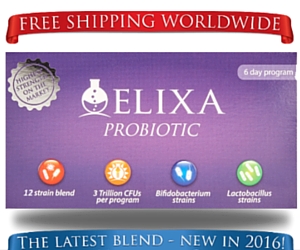
You must be logged in to post a comment.